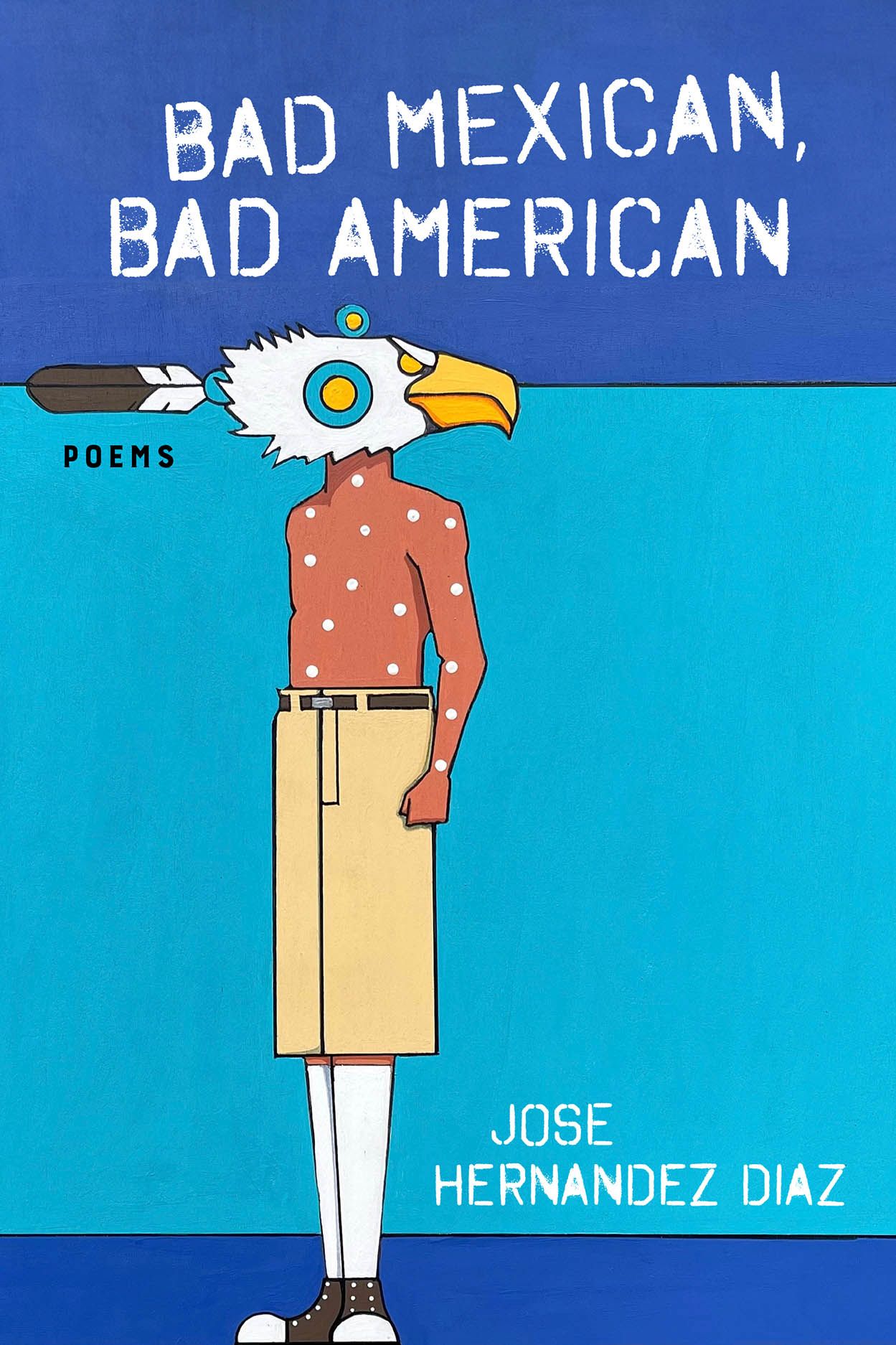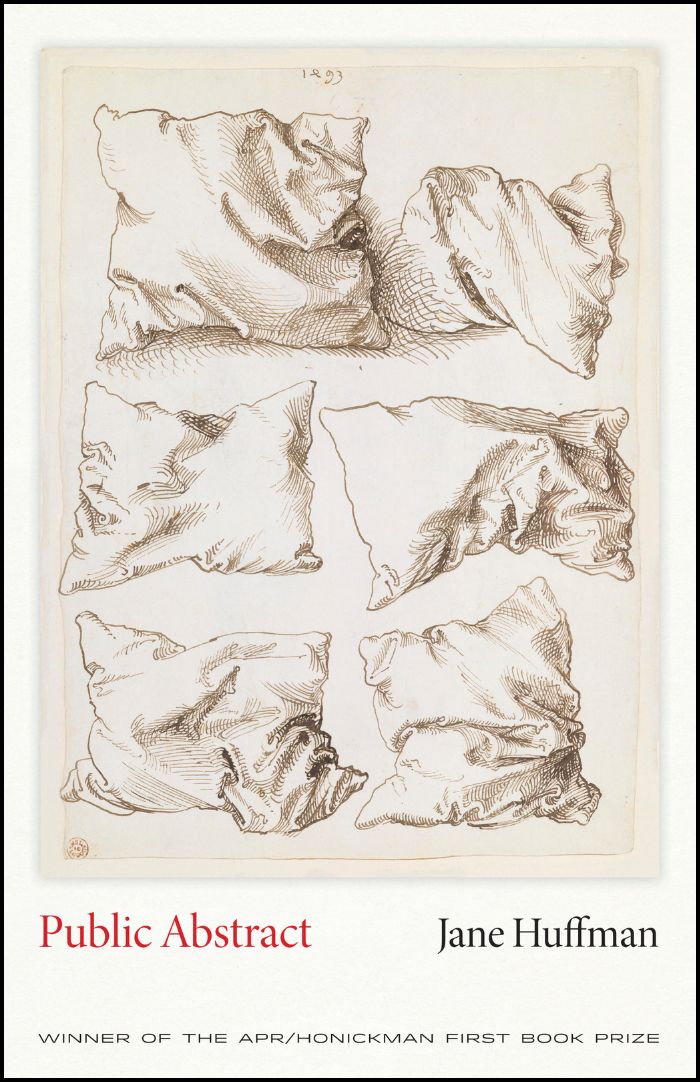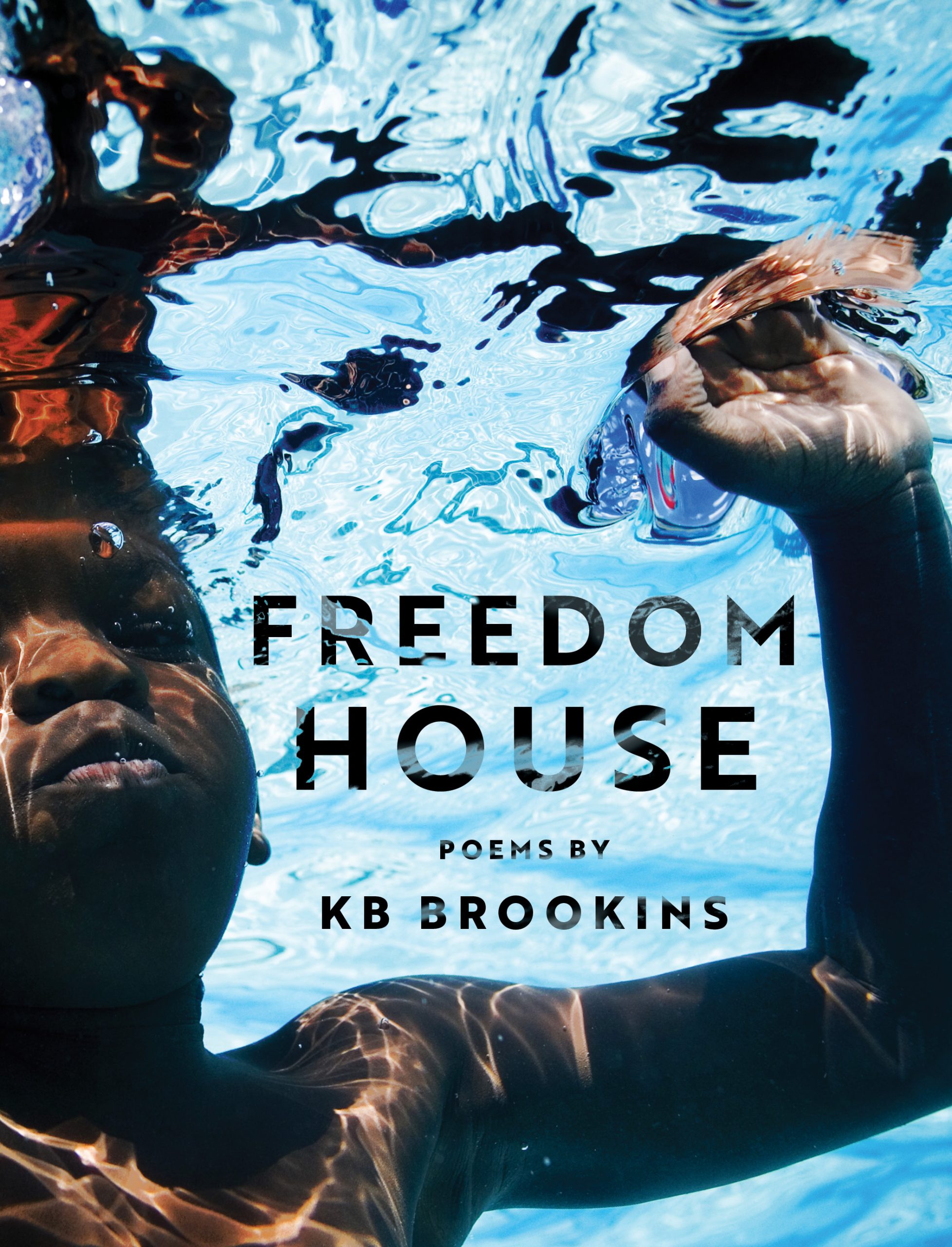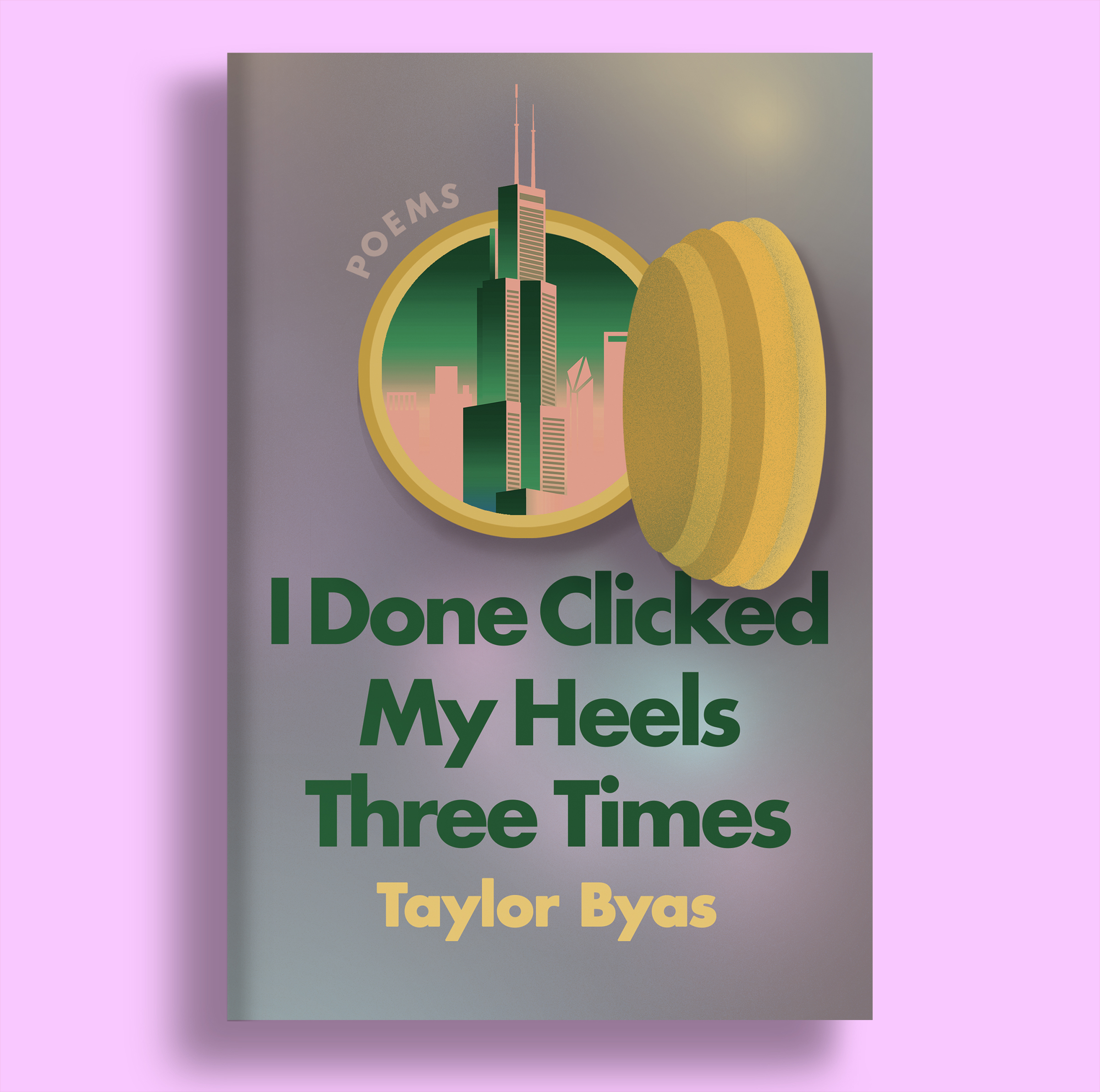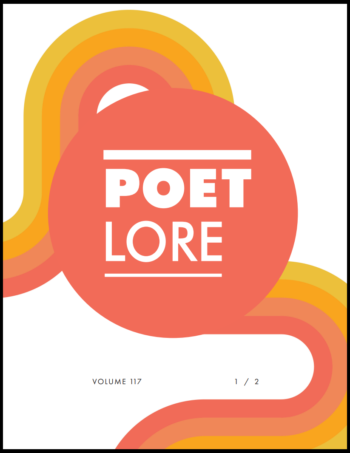Finding Light in the Shadows
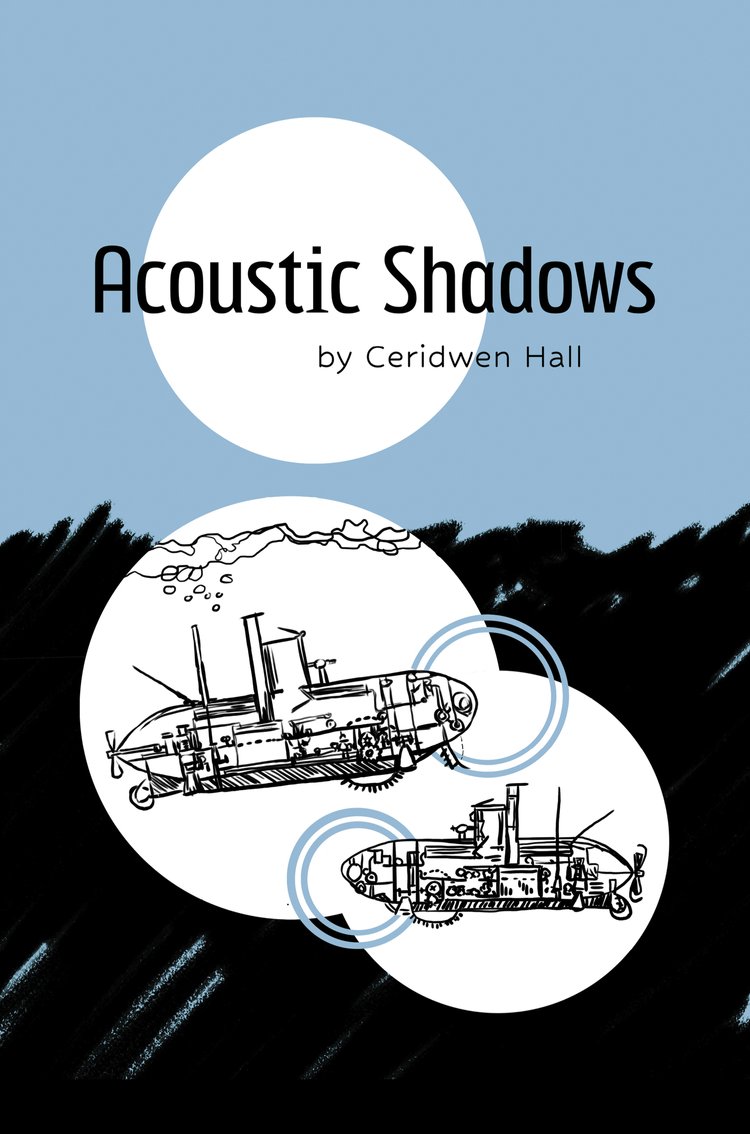
A conversation with Ceridwen Hall about Acoustic Shadows
Editor Emily Holland chats with Poet Lore contributor Ceridwen Hall about asking big questions, putting a book together, and staying afloat during the publishing process.
Emily Holland: Hi Ceridwen! Congratulations on the publication of Acoustic Shadows! To start, can you talk about the publication process for this book? When did you start writing these poems? And how has it been working with Broadstone Books?
Ceridwen Hall: Most of the poems in this collection grew out of my PhD at the University of Utah. When I started the program in 2016, I had a lot of urgent questions about how technology shapes our capacity to communicate and commune with one another, but I felt so entangled in the world of cellphones and laptops that it was hard to write about. When I took a workshop with Kate Coles, she required us to research a new subject and use our research in poems. I chose to research submarines—and they proved to be an ideal vehicle for my Big Questions about how machines can protect, endanger, connect, and alienate us. In addition, they gave me rich imagery for exploring family relationships; to inhabit a submarine is to be simultaneously at home and at sea. My research also introduced me to the concept of acoustic shadows—places where the typical movement of soundwaves is disrupted and sounds behave differently—which gave me a new way to think about poems (places where the typical movement of language is altered so that it resonates with the reader). I finished my PhD in 2020 and I thought I was just about finished with Acoustic Shadows too. But the pandemic and its aftermath gave me a unique lens through which to investigate and amplify all the distance, danger, and uncertainty lurking in the collection. I revised and revised and revised. And I wrote some new poems speaking directly to the ways the pandemic reshaped my interactions with my parents and siblings.
Broadstone Books has been a joy to work with! Larry welcomed my manuscript with enthusiasm and brought heaps of creativity and patience to the formatting process (there are lots of uniquely formatted poems that seek to enact the swerving and diving of submarines). I also got to participate in a 20-poet marathon reading to celebrate Broadstone’s 20th anniversary in September 2023.
EH: As a Poet Lore contributor, and a contributor to other literary journals, what is the impact of a literary journal on your trajectory as a poet?
CH: Writing is long, lonely, and uncertain work (even when there isn’t a global pandemic). For me, journal publications are milestones—they offer little burst of affirmation and indications that the work is “landing” with readers. They are also a beautiful opportunity to step into community with other writers. I love seeing the way that poems from different writers converse with one another across an issue; sometimes I get new insights about themes or patterns in my own poems when they appear in a new context.
EH: Your poems in Poet Lore (Tidings and Wake) open our Fall/Winter 2020 issue. I remember organizing the poems and feeling so strongly that they were the perfect two to begin that issue, an issue that was grappling with loss, the environment, and finding joy in different ways. The poems are quiet, measured, but also strong in voice and perspective. Can you talk about those two poems in particular and how they fit into the larger themes and concerns of Acoustic Shadows?
CH: Wow! That’s so interesting because the poems are still paired together in the collection. “Tidings” (which I revised quite a bit in conversation with some other poems) is the very first poem and “Wake” (which hasn’t changed) is the very last.
I drafted both poems within the same week—right around Christmas and New Year’s. The winter holidays can be challenging for me. There’s pressure to be outwardly bright and exuberant and extroverted—and I often feel a kind of inward dissonance and grief and uncertainty. I like to use poetry (especially prose poetry) to uncontain and explore strong contrasting experiences, to tug at the gap between feeling and language.
Both poems inhabit a world that is part nautical and part domestic—and both are looking for ways to listen and to love across distance, difference, and disagreement. The speaker of Tidings is braced against intensity and seeking to navigate a catastrophe that may already have arrived; the speaker of Wake has reached a kind of personal truce and found a way to step forward through uncertainty.
EH: Speaking of organization of poems, how did you compile this manuscript? When did you know these poems were meant to be together?
CH: One of the benefits of putting together a manuscript in a creative writing program was having a lot of poems that explored similar themes and images from different angles. It was clear from the beginning that the submarine poems belonged in the same fleet. But the manuscript is also about contemporary domestic life and technology (not to mention some telegraphs, some 19th century spirit mediums, and a historic English Channel swim). The challenge for me was figuring out how to shift between secret underwater Cold War ops and family living rooms—and how to write and revise poems that blurred the distinction between these spaces.
The manuscript really cohered for me when I started thinking of the whole thing as a submarine. It had to be watertight and streamlined (I had to cut poems and lines that weren’t generating momentum for the collection) and it had to be able to dive (ocean poems) and surface (family poems) and swerve through different moments in time (i.e. give the reader some paired images and sounds to help facilitate these transitions).
EH: What have you learned over the years in the publishing landscape, both with journals and with book publishers?
CH: I think the two most important skills I’ve built are persistence (the art of being rejected, revising, and trying again elsewhere) and discernment (the art of recognizing which journals and publishers are the best fit for my work and my voice and concentrating my efforts there).
EH: Do you have any advice for poets just finding their footing in the writing and publishing world?
CH: Develop a writing practice—one that incorporates revision, reading other poets’ work, and any other habits that support your writing (for me, this means daily phone-free walks). Be consistent with your practice, but stay open to growth, shifts, and new possibilities. Submitting work to publishers can become a full-time job if you let it. Pace yourself!
Ceridwen Hall is a poet and educator from Ohio. She is the author of Acoustic Shadows (Broadstone Books) and two chapbooks: Automotive (Finishing Line Press), fields drawn from subtle arrows (Co-winner of the 2022 Midwest Chapbook Award). Her work has appeared in TriQuarterly, Pembroke Magazine, The Cincinnati Review, Craft, Poet Lore, and other journals. You can find her at www.ceridwenhall.com.
Purchase a copy of Acoustic Shadows from Broadstone Books.

